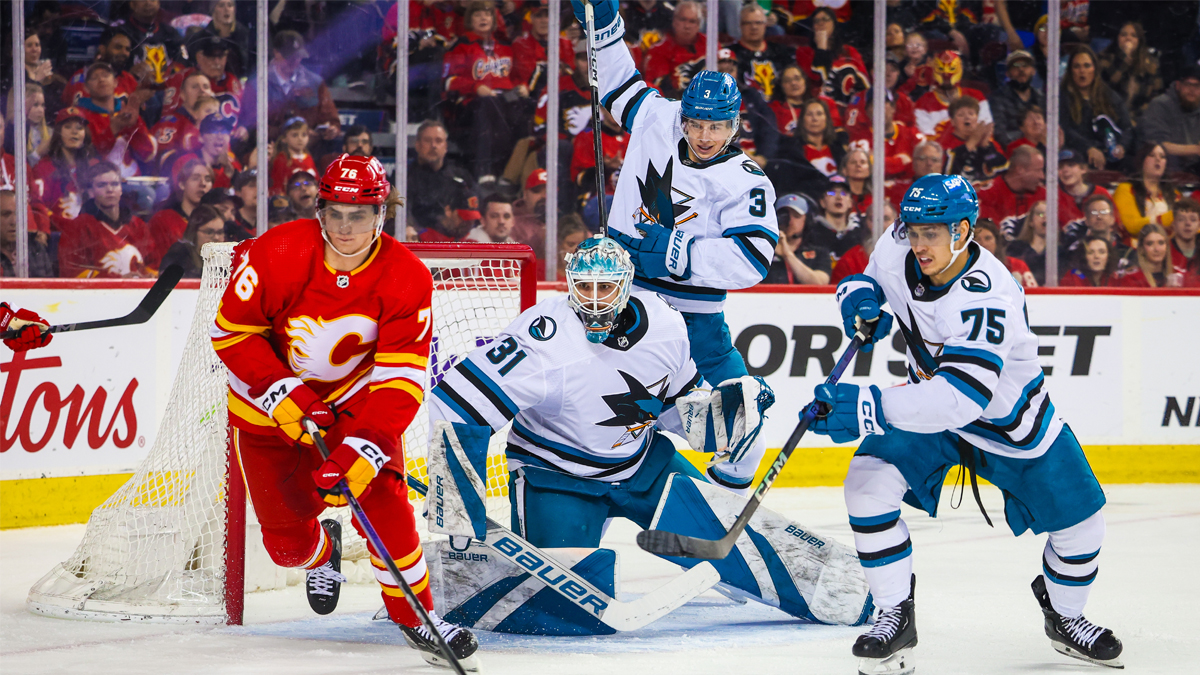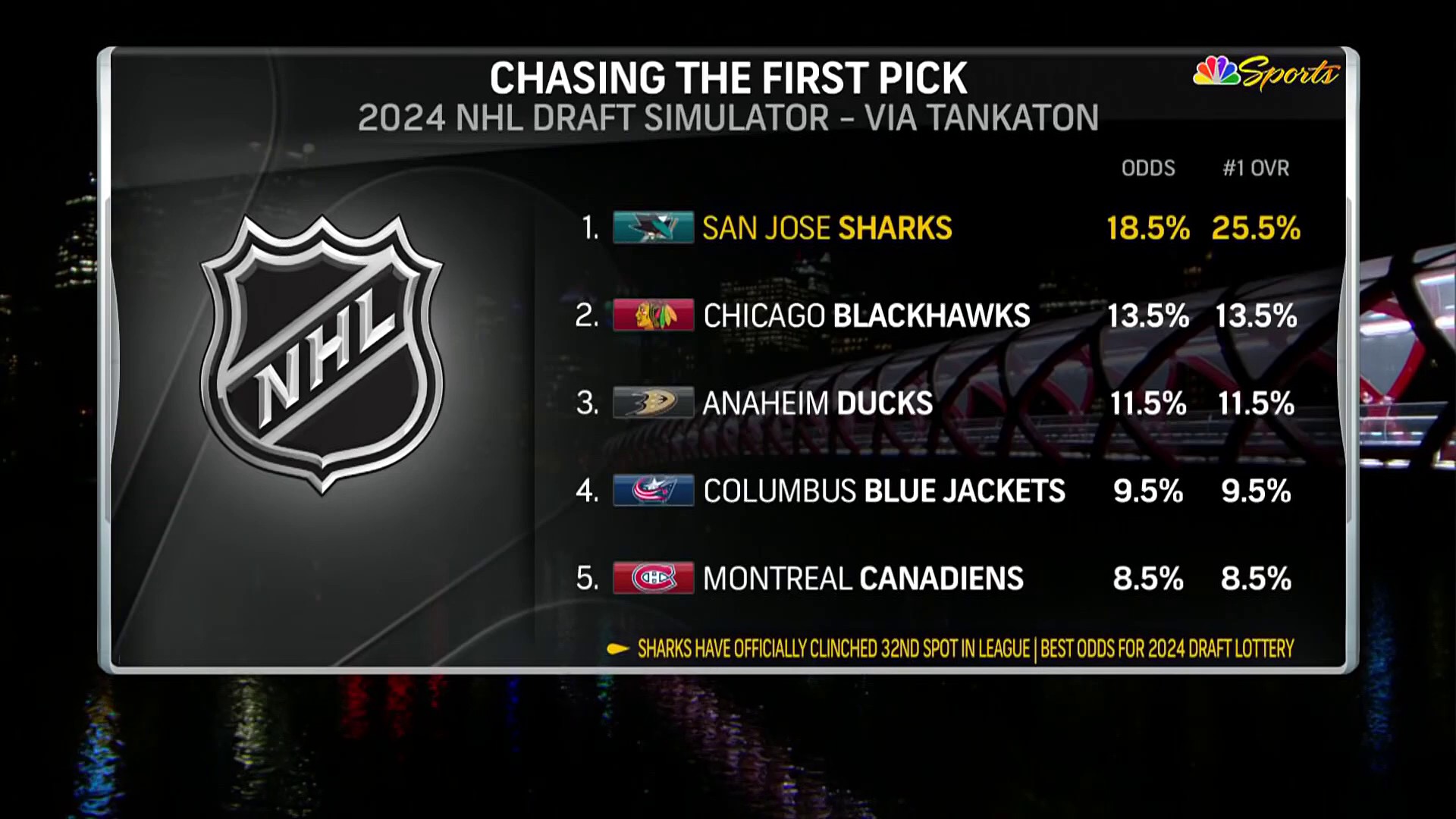
David Koppett
CSNBayArea.com
Are you familiar with the precept of Occams razor?
Although the idea was known earlier, Occam's razor is attributed to the 14th Century English logician, Father William of Ockham. It essentially states that, all things being equal, the simplest possible explanation for a phenomenon is preferable to a more complex one.
Stay in the game with the latest updates on your beloved Bay Area and California sports teams! Sign up here for our All Access Daily newsletter.
Many theories have been proposed for the San Jose Sharks drop in the standings this season ... from a lack to team speed to a dearth of effort to a decline in goaltending to a change in the NHLs general style of play. But if we apply the principle of Occams razor, a different story emerges, one based on the simplest requirement for winning hockey games: scoring goals. You cant win if you cant score, and these Sharks have plenty of trouble scoring, as anyone who watched them score one goal in 120 minutes of hockey the last two nights can attest.
In 2010-11, the Sharks finished 48-25-9 for 105 points, winning their fourth straight Pacific Division title and finishing second overall in the Western Conference. They scored 248 goals (sixth in the NHL) and allowed 213 (tenth in the NHL,) a goal differential of 35.
In 2011-12, the Sharks are 39-29-10 for 88 points. They sit in ninth place in the West with four games remaining and are in danger of missing the playoffs for the first time in nine years.
Heres the interesting part. It is said that championships are won with defense, and thats often the first place to look when a teams results drop off from one season to the next. But defensively, the Sharks havent dropped off at all.
San Jose Sharks
The Sharks have allowed 201 goals this season, seventh-fewest in the NHL. Given their per-game pace, its very likely that they will finish almost precisely upon last years total. And goaltending isnt the problem either. Although Antti Niemis save percentage is down just a tick, from .920 to .914, his goals-against average is almost identical, barely moving from 2.38 to 2.43. Hes right at his career averages in both categories.
How about the other end of the rink? Aha. The Sharks have declined to 211 goals scored this season, meaning they will fall considerably below last seasons output. Theyve fallen from sixth in the league in scoring to thirteenth, and their goal differential has dropped to a mere 10.
How come? Again, lets look for the simplest possible explanation. There have been a number of roster changes this season, but the ones toward the bottom of the roster -- third and fourth liners, fifth and sixth defensemen -- havent had a major impact on the teams scoring, because those players dont score much anyhow. Outside of their Top Six forwards last season -- Joe Thornton, Patrick Marleau, Dany Heatley, Logan Couture, Ryane Clowe and Joe Pavelski -- the Sharks had only one double-figure goal scorer, Devin Setoguchi (more on him in a moment.) This year, Martin Havlat has replaced Heatley in that Top Six, and again, the Sharks have had only one additional double-figure goal scorer, Jamie McGinn -- and hes no longer on the roster, having been traded to Colorado for a pair of non-scorers.
So, in strict terms of output, all those other roster changes havent really affected much. The numbers show that the Sharks are still strong defensively, theyre still good in the faceoff circle, theyre still lousy at killing penalties and they still dont have much secondary scoring. So the question is, what happened in that goal-scoring segment of the roster?
The answer is that the Sharks traded two goal-scorers in the offseason, and the players they received in return havent been able to replace their production.
Heatley and Setoguchi combined to score 48 goals in 2010-11. The players they were traded for, Havlat and Brent Burns, have scored 17 in 2011-12. That difference of 31 goals is very close to what has been subtracted from the teams overall output.
Does this mean that those two trades were bad deals for the Sharks? Not necessarily. Many observers, both inside and outside team management, agreed that the Sharks were outgunned on the blue line in one-sided Western Conference Final losses to the Blackhawks and Canucks the last two seasons. Both of those teams boasted superior speed, puck-moving ability and scoring in their defense corps. So the addition of the talented, sizeable and still-young Burns seemed to make sense. Havlat also figured to add speed and skill to a lineup that was losing both with the subtraction of Setoguchi.
And Heatley and Setoguchi werent exactly problem-free players. Heatley was a disappointment in 2010-11, struggling with injuries and conditioning and dropping from 39 to 26 goals. And Setoguchi, despite some huge playoff tallies, was maddeningly inconsistent throughout his Sharks career, going through lengthy scoring droughts in addition to electric scoring streaks.
But both players know how to, as they say, put the biscuit in the basket. Heatley has posted six NHL seasons of 39 or more goals, totals no current Sharks can match. And Setoguchi has averaged 23 per season over the last four years. This season in Minnesota, with considerably less talented teammates around them, the two have combined for 39 goals, so its hardly a stretch to imagine that, with Thornton, Couture et al feeding them juicy passes in San Jose, theyd have at least matched their 48 of a year ago here.
How about what came back in these trades? Burns has certainly provided much of what was advertised -- speed, physicality and puck-moving ability. But the question arises, with fewer goal scorers up front, to whom is he moving the puck? Of course, hes not the goal-scorer that either Heatley or Setoguchi were (11 this season,) and at the defensive end of the rink, the teams performance hasnt significantly changed.
Havlat has been a huge disappointment. He began the season with a known shoulder injury, started slowly, and then missed half the season due to what one could only call a freak accident (a partially torn hamstring as he caught a skate coming over the boards on a line change.) But it would also be disingenuous to claim that his injury risk factor was a surprise. This will be the fourth time in his career hes played fewer than 60 regular-season games, and the third time hell play fewer than 40. He has scored six goals.
Sociologists like to look for natural experiments in the real world, because they cant run controlled experiments on entire countries over periods of hundreds of years. Hispanola in the Caribbean is a good example of such an accidental experiment, because it consists of an island divided roughly equally into two countries (Haiti and the Dominican Republic) that have experienced significantly different cultures, governmental styles and outcomes despite sharing similar natural resources and conditions.
The 2010-11 and 2011-12 Sharks comprise a rare natural experiment in the hockey world. In most areas of their team, we see control factors between seasons -- the same coach, system, goaltender and nearly identical defensive performance, and similar contributions from holdover stars and from the third and fourth lines despite personnel changes. That leaves the top scorers and the goal scoring, and we can draw a fairly straight line between the subtraction of two of the former and a major drop in the latter.
After making the playoffs in six straight seasons but failing to reach the Stanley Cup Final, it was reasonable to expect the Sharks to make their roster decisions based on how theyd fare in the postseason, rather than worrying about simply reaching it. But this year, the attempt to survive into June may have resulted in a miscalculation that could end their season in the first week of April. Of course, all of these goal-scoring issues might be forgotten if the Sharks manage to finish among the Wests elite eight. Could the addition of Burns and Havlat make the difference the Sharks have been seeking in the playoffs? Lets hope we get a chance to find out.
David Koppett is the senior executive producer-live events with Comcast SportsNet Bay Area.


